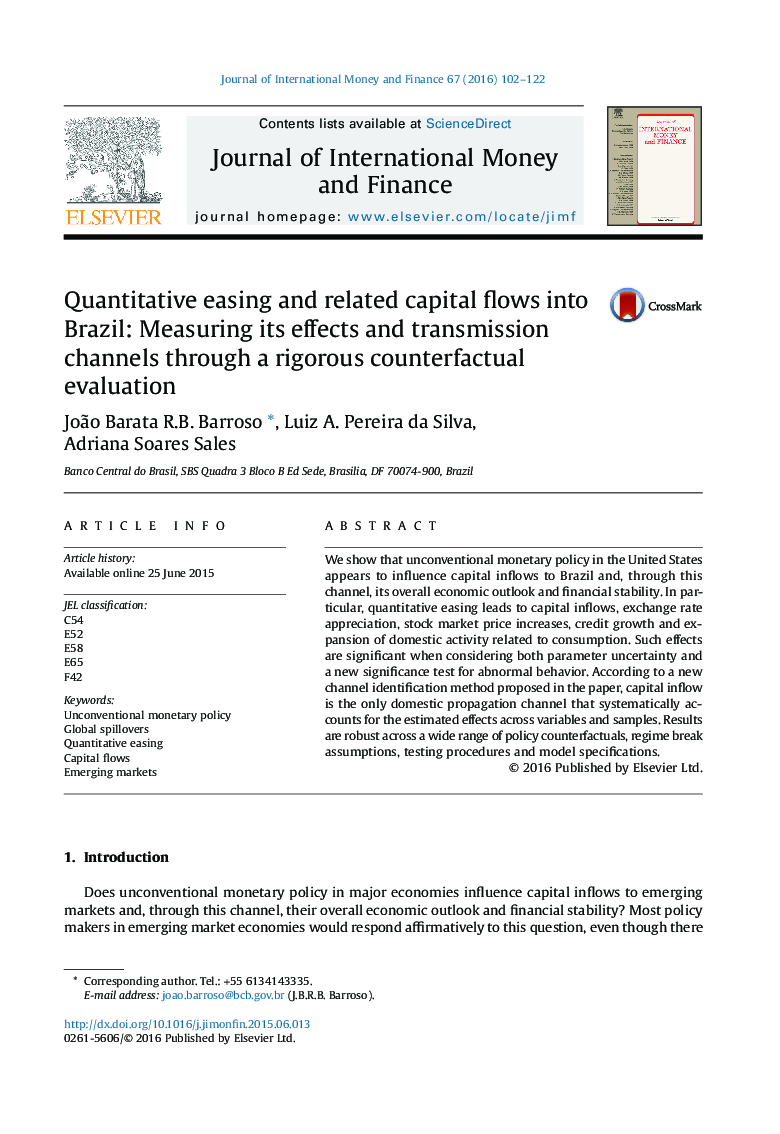| Article ID | Journal | Published Year | Pages | File Type |
|---|---|---|---|---|
| 964586 | Journal of International Money and Finance | 2016 | 21 Pages |
•Unconventional monetary policy in the US affects capital inflows to Brazil and, through this channel, the economic outlook.•The effects include capital flows, exchange rate appreciation, stock market boom, credit growth and expansion of economic activity.•Effects are significant according to a test for abnormal behavior of domestic variables during quantitative easing.•Capital inflow is the only domestic propagation channel that systematically accounts for the estimated effects.
We show that unconventional monetary policy in the United States appears to influence capital inflows to Brazil and, through this channel, its overall economic outlook and financial stability. In particular, quantitative easing leads to capital inflows, exchange rate appreciation, stock market price increases, credit growth and expansion of domestic activity related to consumption. Such effects are significant when considering both parameter uncertainty and a new significance test for abnormal behavior. According to a new channel identification method proposed in the paper, capital inflow is the only domestic propagation channel that systematically accounts for the estimated effects across variables and samples. Results are robust across a wide range of policy counterfactuals, regime break assumptions, testing procedures and model specifications.
